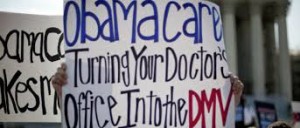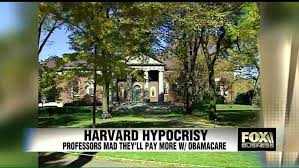With the U. S. Supreme Court scheduling of oral arguments in the case of King V. Burwell on March 4, 2015, I thought I would again touch on the controversial ObamaCare. At issue is the questioning of how people in states with federally-run exchanges can lawfully get tax credit subsidies under the so-called Affordable Care Act (ObamaCare). The law clearly states they cannot. Recently, two health insurance related stories came to my attention, providing the impetus for this blog post.

While many doctors are retiring, others are forming Concierge practices in order to better serve its members. (dailycaller.com)
I’ve been reading numerous stories about the misfortunes taxpayers are experiencing with increased premiums and deductibles, and those IRS penalties soon to hit many of them. Bringing it a bit closer to home, a friend sent me a copy of a letter he received from his doctor outlining the challenges faced in his daily practice of medicine brought about by ObamaCare.
Faced with a decision on how to provide the kind of care he believed he wanted to provide his patients, like many physicians, he decided to transition to the Concierge model of care. Beginning this month, he is limiting his practice to 500 patients agreeing to pay an annual membership fee. As a result, 2,500 patients will be forced to find a new doctor. This is happening across the nation.
The second story is humorous. While the Massachusetts Institute of Technology (MIT) is still stinging from the embarrassing statements about the stupidity of the American public made by one of its professors, Jonathan Gruber, the focus has now turned to Harvard.
Harvard’s experts on health economics and policy have been advising Washington on how to provide health benefits to the nation, but it has now come back to bite them in the “you know what.” Members of the Faculty of Arts and Sciences voted overwhelmingly to oppose changes that would require them and the thousands of other Harvard employees, many of whom championed the introduction of ObamaCare, to pay more for health care.
Richard F. Thomas, a professor of classics at Harvard, called the changes, “deplorable, deeply regressive, a sign of corporatization of the university.” Mary D. Lewis, a professor of history of modern France, said the benefit change was tantamount to a pay cut.

Harvard faculty members are up in arms over health insurance increases with ObamaCare, a plan they helped draft. (insidernews.foxnews.com)
While Harvard’s president, Drew Gilpin Faust, acknowledged the change was “causing stress” on the campus, she said the changes were necessary to meet Harvard’s health benefit costs, which were growing faster than operating revenues. A group of Harvard mathematicians and microeconomists dissected the data and challenged her numbers as misleading.
Back to the Supreme Court decision due in July 2015. It is imperative that the GOP have a pragmatic fallback health insurance plan. Without it I am concerned the justices will be hesitant to uphold the law, believing that doing so would create a serious problem.
Recognizing the questionable manner in which they made their 5-4 decision on the law in June 2012, with Chief Justice John Roberts joining the four liberal members of the court and writing the majority opinion, I trust they will act more prudently. “Because the Constitution permits such a tax, it is not our role to forbid it, or to pass upon its wisdom or fairness,” Roberts surprisingly wrote.
A favorable court decision and a GOP alternative plan would go a long way in persuading the left that Republicans want to “revamp” not “repeal” ObamaCare.






